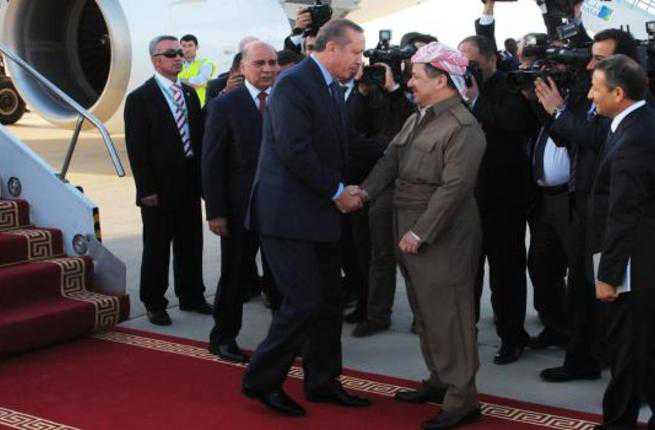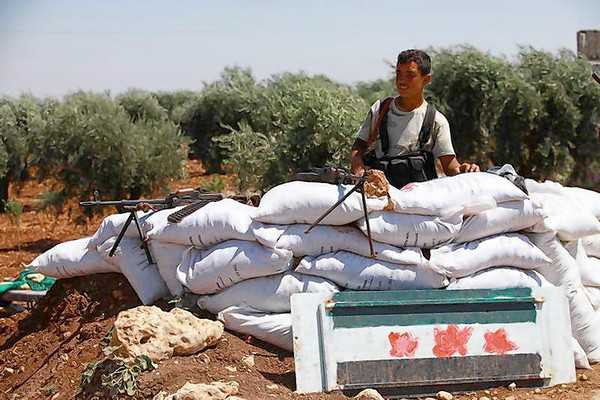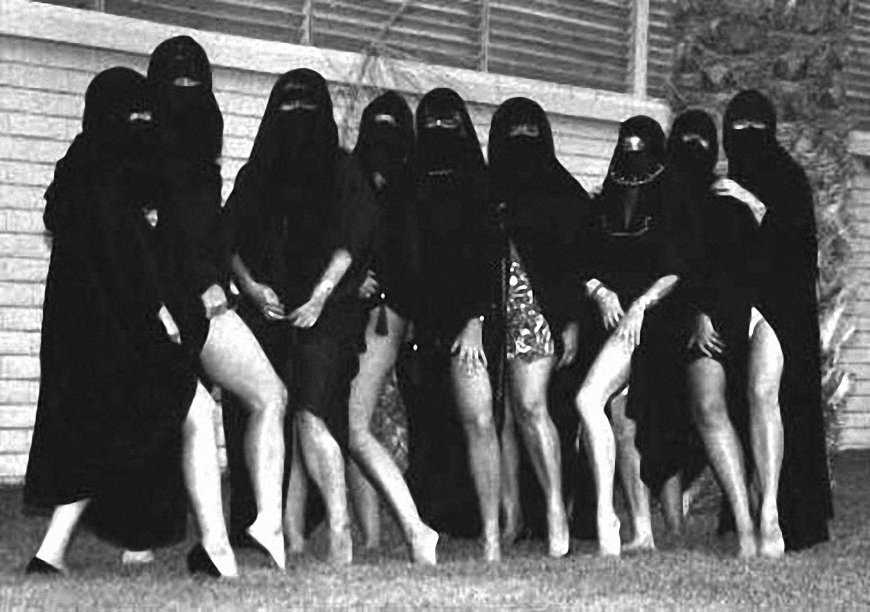Kurds’ Barzani and Turks’ Erdogan have previously met, but Saturday’s meeting represents the first time that the two leaders have met in the Kurdish region of Turkey (Courtesy of the Kurdistan Regional Government)

Turkey’s meeting with Kurdish leadership this weekend posed as a promising start to tentative peace talks between the two clashing groups, according to an Agence-France Press report.
Prime Minister Recep Tayyip Erdogan met with Iraqi Kurdish leader Massud Barzani for the first time in Turkey’s Kurdish city center of Diyarbakir in the southeast part of the country Saturday.
The landmark meeting was designed to “kickstart” a peace process to end a decades-old conflict between the two groups, particularly in reference to Turkey’s tense relationship with the banned Kurdistan Workers Party (PKK). Erdogan described his meeting with Barzani as a “historic” and “crowning moment” in overcoming the conflict.
Erdogan’s positive perspective of the meeting and Barzani’s role in encouraging peace talks between the two groups and bringing Turkish Kurds to the negotiating table as well was echoed by other leaders in Ankara, including Energy Minister Taner Yildiz who described Barzani’s “importance in the eyes of our citizens” as “making it contribution [to the potential peace talks].”
However, responses from the Kurdish community were mixed, with some prominent members of the community citing Barzani’s visit as “an opportunistic gesture” ahead of the March 2014 municipal elections, while others saying that his visit was motivated by “hope [for a different future].”
Reports indicate that the historical meeting was also set in order for Erdogan to discuss a tentative energy partnership with Barzani, considered by many to be a springboard for “aggravating tensions” in the region, particularly in reference to Ankara’s relationship with Baghdad.
Previous attempts at peacemaking between the two groups were stalled after jailed PKK leader Abdullah Ocalan did not withdraw his fighters from Turkish soil as promised in September, accusing Ankara of “failing to keep to the terms [of the original] bargain in giving greater rights [to the Kurds].”
Ocalan’s accussation was largely in reference to Erdogan and his Law and Justice Party (AKP)’s recent reforms that supposedly give Kurds and other groups “extra rights.” However, as indicated by Ocalan’s comments, the reforms are largely seen as inadequate and failing to give the Kurds “any constitutional recognition.”
Kurds in Turkey have been calling for reforms from Ankara since the establishment of the country in 1923 due to the fact that the country’s constitution fails to recognize the Kurds as a distinct minority.
While the two leaders met in an unprecedented meeting in the country’s southeast region, Turkish army officials reported that one of its convoys was attacked, allegedly by PKK rebels near the Syrian border. PKK rebels have previously used northern Iraq, the region under Barzani’s control, to attack Turks as part of their “campaign for self-rule” in southeast Turkey, but also in the world order more generally.
Kurds have been struggling to secure their own homeland for decades with communities scattered throughout Turkey, Iran, Iraq and Syria. As Barzani told AFP, “Having our own state is the natural right of the Kurdish people.”
Barzani’s historical visit also follows last week’s declaration of autonomy in Syria by the Kurdish Democratic Union Party (PYD). Kurdish regions in Syria have been administered by local Kurdish councils since regime forces withdrew from the region in mid-2012.
via Turkey’s “promising” landmark meeting with Kurds’ Barzani receives mixed responses | Al Bawaba.




